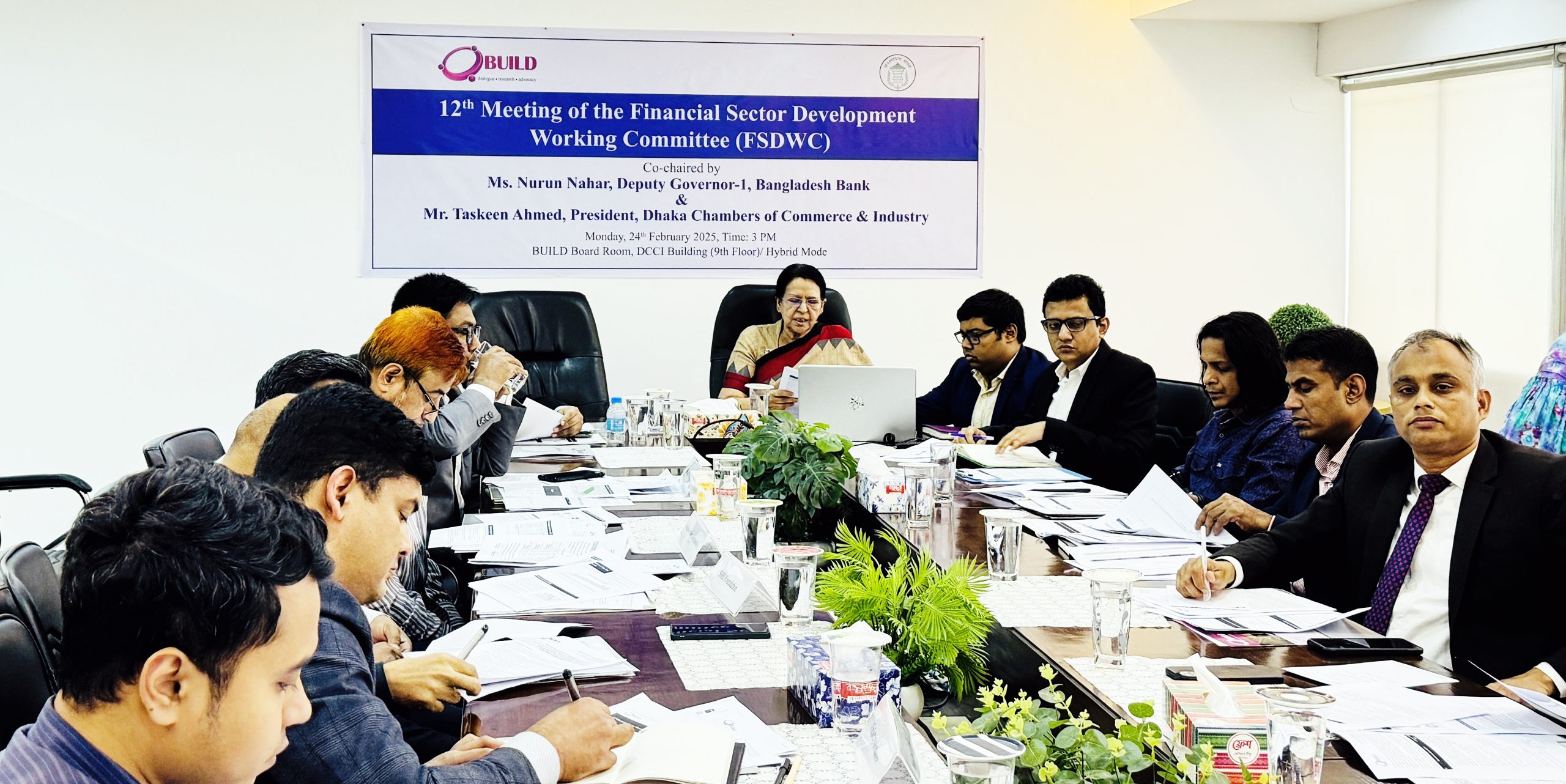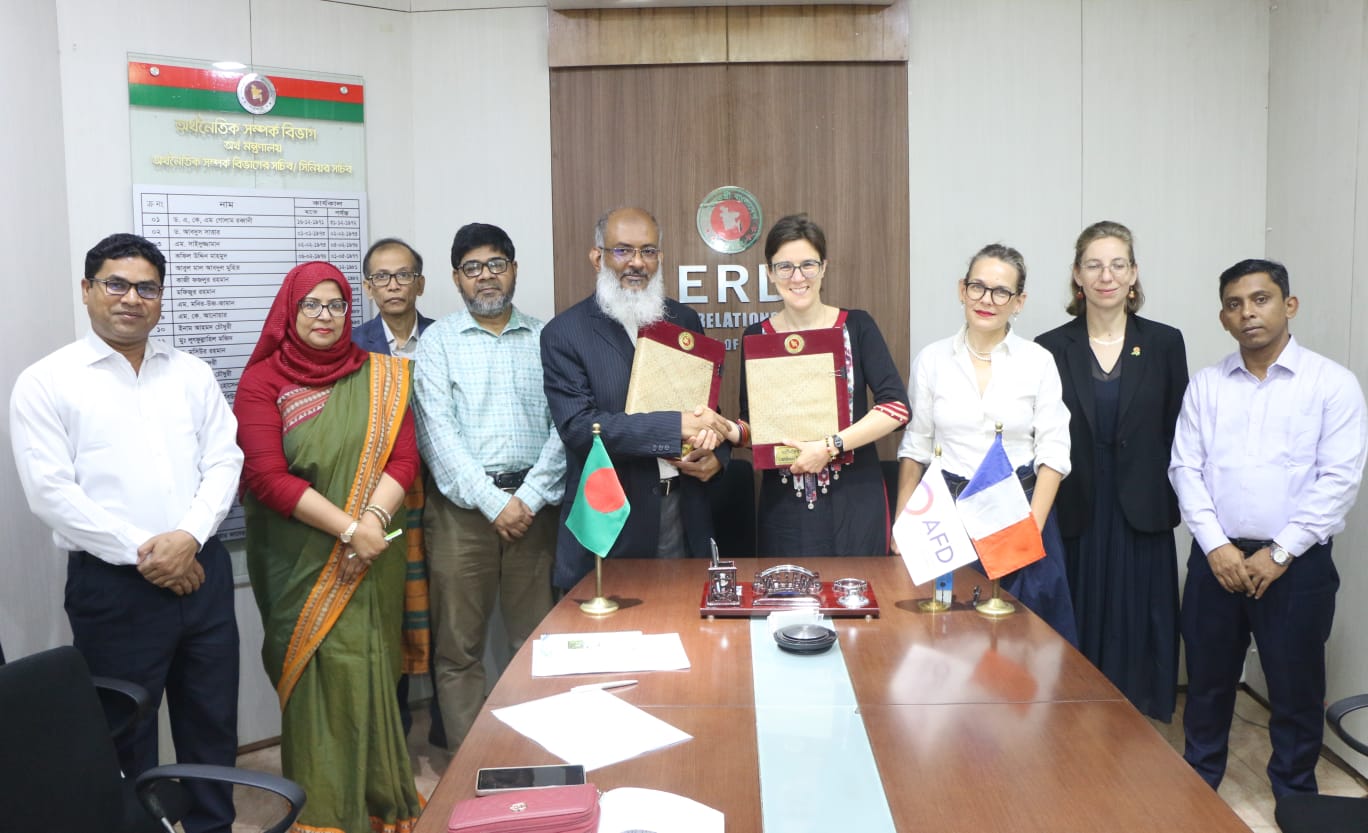
Experts have expressed significant concerns over the persistent inflation that is heavily affecting business growth and investment in Bangladesh. They have urged the government to take immediate action to curb inflation and prevent further economic instability. These statements were made during the 12th Financial Sector Development Working Committee (FSDWC) meeting, which was organized by Business Initiative Leading Development (BUILD) on Tuesday.
The meeting, chaired by Nurun Nahar, Deputy Governor-1 of Bangladesh Bank (BB), brought together experts and stakeholders to discuss the persistent issue of inflation and its detrimental effects on business and investment in Bangladesh. The discussions focused on the urgent need for coordinated measures to tackle high inflation, improve financial inclusion, and restore stability to the financial sector.
At the outset of the meeting, BUILD CEO Ferdaus Ara Begum presented an update on the previous meeting’s recommendations. She informed attendees that several key initiatives, such as the implementation of online software for the Export Facilitation Prefinancing Fund (EFPF), safeguard measures for EFPF, and policies aligning monetary and fiscal policies, had been successfully implemented. However, some recommendations are still in progress, with explanations from Bangladesh Bank still awaited.
In her remarks, Nurun Nahar emphasised the importance of addressing structural inefficiencies within the economy. She acknowledged that inflation had been a persistent challenge but reassured the participants that Bangladesh Bank (BB) was committed to bringing inflation down to 7-8% by June 2025. She also noted that BB is collaborating with the National Board of Revenue (NBR) to formalise the economy and bring about sustainable fiscal and monetary reforms.
Asif Haider, Research Associate at BUILD, presented a policy paper that highlighted the long-standing inflationary issues and their negative impact on the economy. According to the study, private sector credit growth had fallen significantly, with actual growth at just 7.3% in December 2024, far below the target of 9.8%. Meanwhile, public sector credit growth surged to 18.1%, far exceeding its target of 14.2%. The report attributed this discrepancy to several factors, including market regulation failures, the dominance of extortionists in local markets, high policy rates, and ineffective supply chain management.
The study also highlighted the urgent need to reform the financial sector to address inflation. Among its recommendations were increasing loanable funds for banks, revisiting the exchange rate mechanism, and improving coordination between fiscal and monetary policies. Haider suggested that Bangladesh Bank should adopt a market-based exchange rate system and expand refinancing schemes for small and medium-sized enterprises (CMSMEs) to cushion the impact of inflation on the sector.
In response to these concerns, Nahar acknowledged the gravity of the inflation issue, expressing confidence that the current measures in place would bring inflation under control by mid-2025. She also noted that BB was considering further measures to reduce the high spread rates of banks and emphasized the importance of regular meetings between the Fiscal-Monetary Coordination Council to align government policies with market mechanisms.
A key discussion point was the need for public sector-backed cold storage facilities to mitigate price hikes caused by private sector-controlled cold storage. Shaikh Murshidul Islam, Deputy Secretary at the Ministry of Agriculture, assured that the ministry was considering the development of public sector cold storage facilities to alleviate supply chain disruptions.
Several other experts also weighed in on the ongoing inflationary pressure. Wajid Hasan Shah, a member of the Competition Commission Bangladesh, noted that the Commission is reviewing existing laws to widen its scope and curb market manipulation. Dr AKM Asaduzzaman Patwary from the Dhaka Chamber of Commerce and Industry (DCCI) stressed the need to synchronize monetary and fiscal policies to address credit mismatches that are slowing private sector growth.
Representatives from other business bodies echoed these concerns. Md Sajib Hossain of the Bangladesh Knitwear Manufacturers and Exporters Association (BKMEA) pointed out that the Export Facilitation Prefinancing Fund (EFPF) had not gained significant momentum, and suggested that the focus should shift to the Export Development Fund (EDF), which he believed would be more beneficial. He also raised concerns about the rising cost of production due to inflation, especially the impact of wage hikes on industries.
Regarding the banking sector, Nahar assured attendees that BB is working on measures to address issues related to bank spreads and to improve liquidity. Additionally, discussions were held about the need to streamline the process for CMSMEs to access financing, as rising raw material costs are adding pressure to small businesses.
Khan Mohammad Saifjada, Additional Director of Bangladesh Bank, concluded the meeting by highlighting that while BB does not have a specific target for broad money, it continues to monitor the monetary policy carefully. He acknowledged that while the country had experienced a negative balance of payments earlier, the current account had stabilized, easing pressure on the balance of payments (BoP).
In closing, experts, bankers, and business representatives expressed hope that the concerted efforts of Bangladesh Bank and the government would lead to a successful reduction in inflation, ensuring the recovery of the economy and boosting investor confidence. The collective call for immediate policy action reflects the urgency of addressing the long-standing inflation crisis that continues to challenge Bangladesh’s economic growth.








